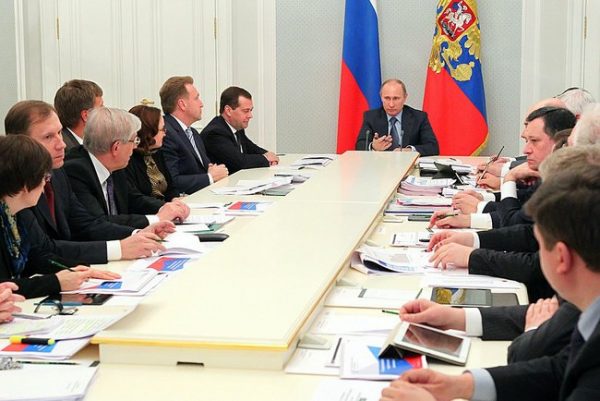Russia’s economy is gradually emerging from contraction and heading to recovery, a global ratings firm says.
S&P said in its latest report on the health of the Russian economy that the recession it has faced is coming to an end.
It revised its assessment of Russia’s credit risk from negative to stable.
“The outlook revision reflects our view that external risks have abated to a significant extent,” the rating agency said this weekend.
“We expect the Russian economy and policy making will continue to adjust to the lower oil price environment and that the country will maintain its strong net external asset position and moderate net general government debt burden in 2016-2019,” it added in its report.
Russia’s GDP contracted 1.2 per cent in Q1 2016 but that slowed to 0.6 per cent in Q2, according to data from the Rosstat federal statistics service.
This is a marked improvement to its 3.7 per cent contraction in 2015; it contracted 3.8 per cent in Q4 in 2015.
A recent report from the Economic Development Ministry indicates that the Russian economy will turn the corner in 2016 and show GDP growth once again in 2017 as long as oil prices remain above $45 a barrel.
Global oil prices currently pivot below the $50 mark period, but some analysts believe they could reach $60 a barrel by 2017.
S&P on Friday voiced similar optimism.
“We expect a return to positive real GDP growth in 2017-2019 averaging 1.6 percent,” S&P said.
The S&P report comes in tandem with an International Monetary Fund (IMF) report released in June which praised Russian authorities for a string of measures that have helped soften the blow of recession.
“The economic contraction is nonetheless shallower than previous recessions as a stronger external position and the authorities economic package — a flexible exchange rate regime, banking sector capital and liquidity injections, limited fiscal stimulus, and regulatory forbearance — cushioned the shocks, helped restore confidence and stabilized the financial system,” the IMF said at the time.
“Growth is expected to resume in 2017 and reach 1 per cent, as domestic demand slowly recovers on the back of easing financial conditions and pent-up demand,” the IMF report said.
Both the IMF and S&P assessments appear to match those of Russian economic experts.
Russian Finance Minister Anton Siluanov said that the S&P assessment of the economy is the first positive estimate from a global ratings agency in six years.
“The decision reflects the non-biased process of finalization of adjustment of the Russian economy to new external conditions,” he said in remarks carried by the TASS news agency.
He said that the ministry was working the implementation of the budget consolidation program within the next three years to shield it from “fluctuations of the commodity markets”.
He also said that new budgetary rules would soon be in place to “facilitate the return of sovereign rating to the area of investment level in the future”.
